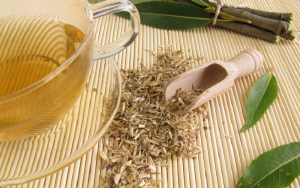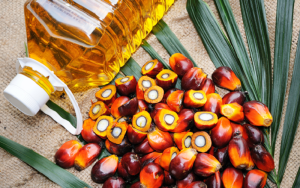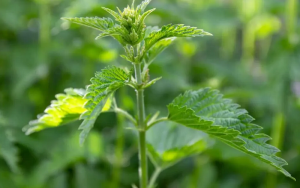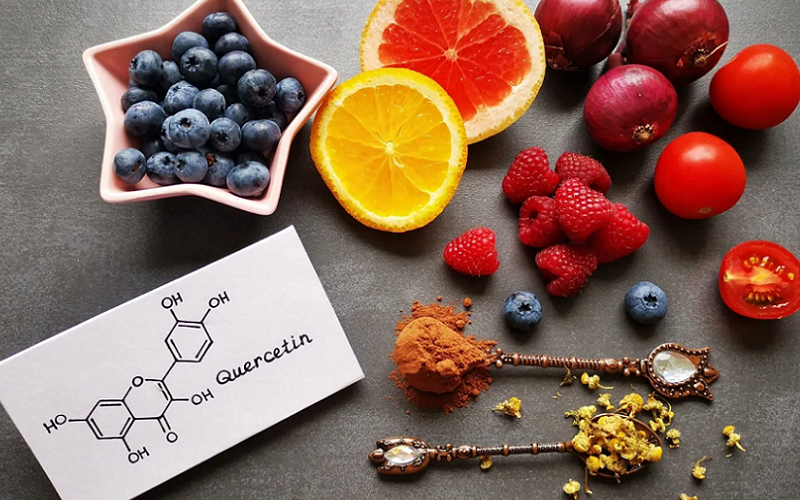
Quercetin is a naturally occurring compound that’s packed full of antioxidant and anti-inflammatory properties. Found in a variety of fruits, vegetables, and grains, this powerful flavonoid has been the focus of many scientific studies due to its potential benefits for human health.
Contents
Introduction to Quercetin
Quercetin is a type of flavonoid, a group of plant pigments responsible for the vibrant colors of many fruits and vegetables. Flavonoids are recognized for their powerful antioxidant effects, and Quercetin is no exception. But what sets Quercetin apart is not just its antioxidant capabilities, but also its potential anti-inflammatory actions.
Quercetin is ubiquitous in nature. It’s found in high amounts in foods like onions, apples, berries, and even in some herbs and teas. Its presence is nature’s way of protecting these plants against diseases and pests. For humans, consuming these Quercetin-rich foods can offer a range of health benefits.
Understanding Antioxidants and Anti-Inflammatory Agents
Before we delve into the specifics of Quercetin, it’s crucial to grasp the broader concepts of antioxidants and anti-inflammatory agents. These two types of compounds play a vital role in maintaining overall health and preventing various diseases.
Definition and Role of Antioxidants
Antioxidants are molecules that help neutralize harmful substances in our bodies known as free radicals. Free radicals are unstable molecules that can cause damage to cells, leading to a state of imbalance called oxidative stress. Oxidative stress is associated with a variety of health issues, including heart disease, cancer, and neurodegenerative disorders such as Alzheimer’s disease. By neutralizing free radicals, antioxidants help protect our cells and support overall health.
Definition and Role of Anti-Inflammatory Agents
Anti-inflammatory agents, on the other hand, work to combat inflammation in the body. Inflammation is a natural and necessary immune response to injury or infection, but when it becomes chronic, it can lead to various health problems, including heart disease, diabetes, and arthritis. Anti-inflammatory compounds help to reduce this persistent inflammation, thereby promoting healthier bodily functions and reducing the risk of chronic disease.
The Connection between Oxidative Stress, Inflammation, and Chronic Diseases
Interestingly, oxidative stress and inflammation are closely linked. Research shows that oxidative stress can trigger inflammation, and chronic inflammation can in turn lead to increased oxidative stress. This vicious cycle can contribute to the development and progression of many chronic diseases. Therefore, compounds like Quercetin, which have both antioxidant and anti-inflammatory properties, can play a vital role in breaking this cycle and promoting health.

Quercetin as an Antioxidant
Now that we’ve laid the groundwork by understanding the importance of antioxidants in maintaining optimal health, let’s delve into Quercetin’s role as an antioxidant. This flavonoid’s antioxidant capacity has been widely studied and recognized.
Mechanism of Quercetin’s Antioxidant Action
At its core, Quercetin operates as an antioxidant by donating an electron to free radicals. These unstable molecules are on a destructive path, trying to snatch electrons from other molecules, which can result in cellular damage. Quercetin, like other antioxidants, steps in to neutralize these free radicals by willingly giving up an electron, thereby reducing oxidative stress [1].
Quercetin’s Effect on Oxidative Stress
Quercetin’s antioxidant properties have a significant impact on reducing oxidative stress. It not only neutralizes free radicals directly but also has the potential to enhance the body’s own antioxidant defenses. Some studies suggest that Quercetin can up-regulate the production of endogenous antioxidants – the antioxidants that our bodies produce naturally. This dual action makes Quercetin a particularly potent antioxidant.
Comparative Analysis: Quercetin vs Other Antioxidants
When compared to other antioxidants, Quercetin holds its own. In various studies, it has shown similar, if not superior, antioxidant capacity to other well-known antioxidants like vitamin C and vitamin E. Furthermore, its additional health benefits, such as its anti-inflammatory action, make it a unique and powerful contributor to health and wellness.
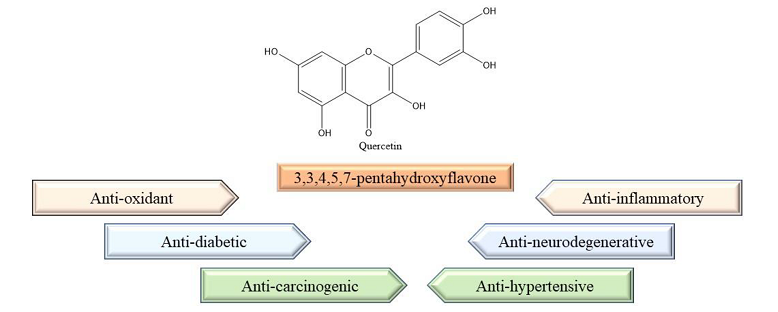
Quercetin as an Anti-Inflammatory Agent
Beyond its powerful antioxidant capabilities, Quercetin is also well-recognized for its anti-inflammatory properties. Inflammation is a key player in many chronic diseases, and compounds that can help manage it are essential to our health.
Mechanism of Quercetin’s Anti-Inflammatory Action
Quercetin’s anti-inflammatory action operates on several levels. It works by inhibiting the production and activity of pro-inflammatory molecules such as cytokines and enzymes. This means it can help prevent the inflammatory response from getting out of hand, potentially reducing the risk of chronic inflammation [2].
Quercetin’s Impact on Inflammatory Conditions
Research suggests that Quercetin’s anti-inflammatory properties can have a significant impact on a variety of inflammatory conditions. For instance, studies have shown that Quercetin can help alleviate symptoms of inflammatory diseases like arthritis, asthma, and inflammatory bowel disease. However, it’s important to note that while these findings are promising, more research is needed, especially large-scale human trials, to fully understand Quercetin’s potential in this area [3].
Comparative Analysis: Quercetin vs Other Anti-Inflammatory Agents
When compared to other anti-inflammatory agents, Quercetin offers several unique advantages. Its natural origin and low toxicity profile make it a safe option for long-term use. Moreover, unlike some anti-inflammatory drugs that can have side effects like gastrointestinal issues, Quercetin is generally well-tolerated. Additionally, its dual antioxidant and anti-inflammatory action provides a comprehensive approach to promoting health and preventing disease.
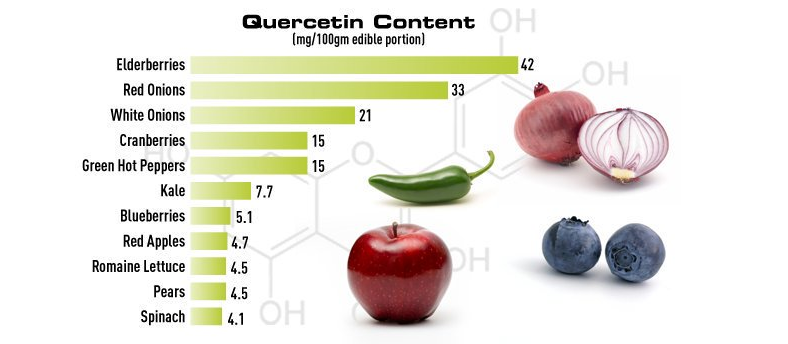
Potential Health Benefits of Quercetin
With its impressive antioxidant and anti-inflammatory properties, Quercetin has been linked to a wide range of potential health benefits. While more research is needed to fully understand the extent of these benefits, preliminary studies and clinical trials suggest that Quercetin could play a role in supporting cardiovascular health, metabolic health, neurological health, and more.
Benefits for Cardiovascular Health
Quercetin has been widely studied for its potential benefits to cardiovascular health. Its antioxidant action helps to protect the heart and blood vessels from oxidative damage, a key factor in the development of heart disease. Moreover, Quercetin’s anti-inflammatory properties can help to reduce chronic inflammation, another significant contributor to cardiovascular disease. Some research even suggests that Quercetin may help to lower blood pressure and reduce cholesterol levels, although further studies are needed to confirm these effects [4].
Benefits for Metabolic Health
Quercetin could also play a role in promoting metabolic health. It has been studied for its potential effects on blood sugar regulation, with some studies suggesting that it may help to improve insulin sensitivity and glucose metabolism. This could make it a useful supplement for those at risk of or living with type 2 diabetes, although more research is needed in this area [5].
Benefits for Neurological Health
Research into Quercetin’s effects on neurological health is still in its early stages, but the results so far are promising. Its potent antioxidant action can help to protect brain cells from oxidative stress, which is believed to play a role in the development of neurodegenerative diseases like Alzheimer’s and Parkinson’s. Moreover, its anti-inflammatory properties could help to reduce neuroinflammation, a key factor in many neurological conditions [6].
Other Potential Health Benefits
Beyond these areas, Quercetin has been linked to a variety of other potential health benefits. For instance, some studies suggest that it could play a role in supporting immune health, improving exercise performance, and even reducing the risk of certain types of cancer. However, these areas need further research to fully understand the potential benefits of Quercetin.
How to Incorporate Quercetin into Your Diet
Given the potential health benefits of Quercetin, you might be wondering how you can incorporate this potent flavonoid into your diet. Luckily, Quercetin is found in a variety of foods, so there are plenty of tasty ways to increase your intake. Additionally, Quercetin supplements are available for those who may not get enough through diet alone.
Dietary Sources of Quercetin
Quercetin is abundant in many fruits, vegetables, and whole grains. Some of the richest sources include onions, apples, grapes, berries, cherries, citrus fruits, broccoli, kale, and whole grains like buckwheat. Adding more of these foods to your diet is a great way to increase your intake of Quercetin, along with a whole host of other beneficial nutrients.
Recommendations for Daily Intake
There is currently no official recommended daily intake for Quercetin. However, research suggests that a daily intake of 500-1000mg is safe and potentially beneficial for adults. This amount can typically be achieved through a diet rich in fruits and vegetables, although individual needs may vary based on factors like age, sex, and overall health status.
Quercetin Supplements: Pros and Cons
For those who struggle to get enough Quercetin through diet alone, supplements are an option. Quercetin supplements can provide a concentrated dose of this potent antioxidant and are typically well-tolerated. However, they should be used with caution. Like any supplement, Quercetin supplements can interact with certain medications and may not be suitable for everyone. Always consult with a healthcare provider before starting any new supplement regimen.
References
[1] Should you take quercetin for immune health? What you need to know
[2] What Is Quercetin, and What Are Its Benefits?
[3] 6 Health Benefits Of Quercetin And Why You Should Get More Of This Antioxidant From Your Diet
[4] The Biggest Benefits of Quercetin, According to Dieticians
[5] Quercetin
[6] Health Benefits of Quercetin in Age-Related Diseases

